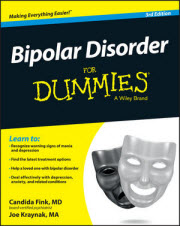February 4, 2008
Slowly opening the waiting room door, I check to see if the elephant is in its place, flop down, and flip through a magazine while twirling my hair. I am waiting for my psychiatrist to call my name. I will then go back to her office and answer all the questions I know best. As always, it comes after a short discussion about what the weather is doing. The questions are the same and subtly asked during each of my visits.
“How have you been?” She asks. I think this open-ended question is asked so the psychiatrist can write down the characteristics of my appearance. During my first appointments, I came with no make-up, hardly brushed hair, wrinkled clothes, and old flip flops. Many times the clothes were the ones I’d slept in the night before. The flip-flops were worn even through the coldness of the winter. The psychiatrist would study me and then continually write, glancing up from time to time to give me an occasional, “I see.” Of course, during that time I stared expressionlessly at my unpolished toenails, yearning to be back in bed. Lately, I show up to my appointments with groomed hair, in-style outfits, cute sandals, and painted toe nails. It’s remarkable, the doctor writes little these days and we make eye contact frequently. It is on the days that the elephant in the waiting room does not hassle me. I know it’s there, but its place and position are tolerated with ease.
My doctor is unaware of my fixation with the elephant in her waiting room. I feel it fulfills a need for distraction in my journey with a psychiatric illness. The next question follows, “How are the depressive thoughts?” she asks with her eyes set on mine. These thoughts include everything from low self-worth to longing for my death to come quickly. Depending on my answer, the next question comes with hope or concern. “Have you had any suicidal thoughts since our last visit?” The first time I ever admitted “Yes” was so troubling I could barely speak the word. The particular day I admitted my plans to destroy my life, I walked into the waiting room, sat down unable to look at the elephant. I knew admitting the suicidal thoughts would change the way I was approached. I would be followed more closely and my insurance forms would be answered differently. Answering the query truthfully comes with the possibility of hospitalization. Yet, I know admitting the truth makes me one step closer to be relief from the ravaging thoughts. If my answer is yes, I loathe the next question, “Do you have a plan?” My plans have come in considerations I never believed I could have. As the panic attacks become controlled and the depression lifts, the thoughts lessen. Being with the thoughts brings changes in medicine and risks of hospitalization. It makes looking at the elephant so hard.
Nowadays, the suicidal thoughts and the fear of hospitalization are quiet. The elephant is still there, but not a bother to me. I came to a point where I knew I would always have this illness. I know there will never be a cure or even a completion of treatment. Each day my hope must be renewed. As I leave the doctor’s office with my scripts and my next appointment card in hand, I check the elephant one more time. I know he’s okay where he is and I am too.

Liked your story. Just starting treatment. I am soon to be 49.
“I came to a point where I knew I would always have this illness. I know there will never be a cure or even a completion of treatment. Each day my hope must be renewed.”
The entire story resonated well with me, but I found that part especially pleasant. I’m still getting there, myself.
I’ve had recurrent depression for decades, sometimes lasting a month or two, sometimes a year or more. The worst for me is how much my depression hurts on the inside, how much it makes me loathe and hate myself — but that’s the depression screwing up the chemicals, the neurotransmitters, in my brain and telling me lies. It really makes me feel hopeless, though, makes me beat myself in the head. The most recent episode, Depression led me to go shopping for a weapon because I just didn’t think I could hold on any longer. I decided to go into the hospital because I knew I would die if I didn’t. This was last year, after 3 years of worsening depression, despite meds and therapy and all. I’m healthy now. though, and glad I’m alive. It is, indeed, crucial to remember that you will feel better someday and that the negative messages your brain tells you are NOT true. And to keep asking for help when things are bad. Was this answer helpful?